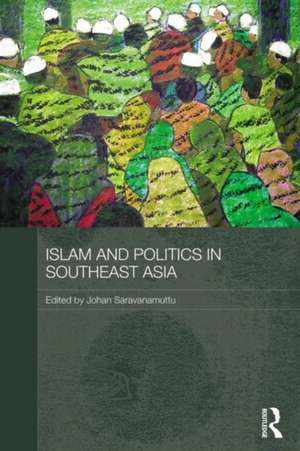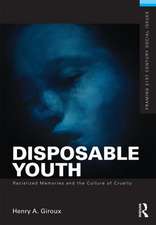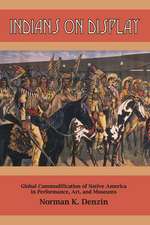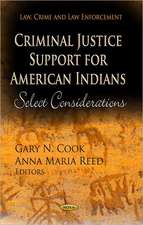Islam and Politics in Southeast Asia: Routledge Malaysian Studies Series
Editat de Johan Saravanamuttuen Limba Engleză Paperback – 16 apr 2012
| Toate formatele și edițiile | Preț | Express |
|---|---|---|
| Paperback (1) | 413.13 lei 6-8 săpt. | |
| Taylor & Francis – 16 apr 2012 | 413.13 lei 6-8 săpt. | |
| Hardback (1) | 1057.75 lei 6-8 săpt. | |
| Taylor & Francis – 10 dec 2009 | 1057.75 lei 6-8 săpt. |
Din seria Routledge Malaysian Studies Series
-
 Preț: 402.98 lei
Preț: 402.98 lei -
 Preț: 410.16 lei
Preț: 410.16 lei -
 Preț: 416.96 lei
Preț: 416.96 lei -
 Preț: 489.99 lei
Preț: 489.99 lei -
 Preț: 416.96 lei
Preț: 416.96 lei - 11%
 Preț: 304.68 lei
Preț: 304.68 lei -
 Preț: 448.12 lei
Preț: 448.12 lei - 13%
 Preț: 336.43 lei
Preț: 336.43 lei -
 Preț: 396.91 lei
Preț: 396.91 lei -
 Preț: 416.96 lei
Preț: 416.96 lei -
 Preț: 449.41 lei
Preț: 449.41 lei -
 Preț: 434.32 lei
Preț: 434.32 lei -
 Preț: 436.14 lei
Preț: 436.14 lei -
 Preț: 416.22 lei
Preț: 416.22 lei - 17%
 Preț: 270.20 lei
Preț: 270.20 lei -
 Preț: 389.38 lei
Preț: 389.38 lei -
 Preț: 379.86 lei
Preț: 379.86 lei -
 Preț: 402.13 lei
Preț: 402.13 lei - 18%
 Preț: 1330.94 lei
Preț: 1330.94 lei - 17%
 Preț: 245.56 lei
Preț: 245.56 lei
Preț: 413.13 lei
Nou
Puncte Express: 620
Preț estimativ în valută:
79.06€ • 82.04$ • 66.08£
79.06€ • 82.04$ • 66.08£
Carte tipărită la comandă
Livrare economică 15-29 martie
Preluare comenzi: 021 569.72.76
Specificații
ISBN-13: 9780415625340
ISBN-10: 0415625343
Pagini: 208
Ilustrații: 10 tables
Dimensiuni: 156 x 234 x 11 mm
Greutate: 0.38 kg
Ediția:1
Editura: Taylor & Francis
Colecția Routledge
Seria Routledge Malaysian Studies Series
Locul publicării:Oxford, United Kingdom
ISBN-10: 0415625343
Pagini: 208
Ilustrații: 10 tables
Dimensiuni: 156 x 234 x 11 mm
Greutate: 0.38 kg
Ediția:1
Editura: Taylor & Francis
Colecția Routledge
Seria Routledge Malaysian Studies Series
Locul publicării:Oxford, United Kingdom
Public țintă
PostgraduateCuprins
1. Introduction: Majority-Minority Muslim Politics and Democracy 2. Authority and Democracy in Malaysian and Indonesian Islamic Movements 3. Political Islam and Democracy in the Majority Muslim Country of Indonesia 4. The Authoritarian State and its Link to Political Islam in Muslim-Majority Malaysia 5. Encounters of Muslim Politics in Malaysia 6. Missing Lawyer in Thailand: The Fate of Engaged Muslims in Authoritarian Democracy 7. A Never-ending War and the Struggle for Peace in Southern Philippines 8. Authoritarian Democracy and the Minority Muslim Polity in Singapore 9. Ideology and Utopia in the Discourse on Civil Society in Indonesia and Malaysia
Recenzii
"All chapters of Islam and Politics in Southeast Asia are an engaging read for the target audience. For those readers familiar with 'Political Islam in South East Asia', Islam and Politics in Southeast Asia serves as a wonderful advancement in discourse on a coherent theme. It is a pleasure to be able to read works which rely on cutting-edge research." - Ahmad Fauzi Abdul Hamid, Contemporary South Asia Vol. 32, No. 2 (2010)
"The book under review offers a rare discussion of theoretical and empirical thinking about Islamic engagements with, variously, state power, 'authoritarian democracy' and civil society challenges, set against highly pluralistic societies that make up Southeast Asia. Highly recommended as a teaching resource not only for Southeast Asianists but, more broadly, for students of comparative politics and religion." - Geoffrey C. Gunn, Faculty of Economics, Nagasaki University, Japan; Journal of Contemporary Asia, Vol. 41 No. 2 (2011)
"Islam and politics in Southeast Asia is a well researched and documented study of Muslim politics in modern post-colonial Southeast Asia. The individual writer's astute observations and pointed conclusions offer insights how each Muslim community that is examined responds to and engages with the state which is viewed as fundamentally authoritarian. Thus, the book is of value to students and scholars of social sciences, Southeast Asian and Islamic studies because it provides a basis for an understanding of Muslim politics in individual countries of Southeast Asia, to make comparisons between Muslim communities, particularly between the situations of Muslim majority and Muslim minority, and finally to gain an overview of the region as a whole." - Zailan Moris, School of Humanities, Universiti Sains Malaysia, Penang; Kajian Malaysia, Vol. 28, No. 2, 2010
"This is a welcome addition to the growing literature on Islam in Southeast Asia. Interpretative notions such as authoritarian democracy and engaged Muslims are intriguing and should promote discussion and analysis" - Paul A Rodell, Georgia Southern University, 2012.
"The book under review offers a rare discussion of theoretical and empirical thinking about Islamic engagements with, variously, state power, 'authoritarian democracy' and civil society challenges, set against highly pluralistic societies that make up Southeast Asia. Highly recommended as a teaching resource not only for Southeast Asianists but, more broadly, for students of comparative politics and religion." - Geoffrey C. Gunn, Faculty of Economics, Nagasaki University, Japan; Journal of Contemporary Asia, Vol. 41 No. 2 (2011)
"Islam and politics in Southeast Asia is a well researched and documented study of Muslim politics in modern post-colonial Southeast Asia. The individual writer's astute observations and pointed conclusions offer insights how each Muslim community that is examined responds to and engages with the state which is viewed as fundamentally authoritarian. Thus, the book is of value to students and scholars of social sciences, Southeast Asian and Islamic studies because it provides a basis for an understanding of Muslim politics in individual countries of Southeast Asia, to make comparisons between Muslim communities, particularly between the situations of Muslim majority and Muslim minority, and finally to gain an overview of the region as a whole." - Zailan Moris, School of Humanities, Universiti Sains Malaysia, Penang; Kajian Malaysia, Vol. 28, No. 2, 2010
"This is a welcome addition to the growing literature on Islam in Southeast Asia. Interpretative notions such as authoritarian democracy and engaged Muslims are intriguing and should promote discussion and analysis" - Paul A Rodell, Georgia Southern University, 2012.
Descriere
This book examines the ways in which Muslim politics in Southeast Asia has greatly impacted democratic practice and contributed to its practical and discursive development. It provides comparisons and linkages amongst Muslim-majority and -minority countries, to aid understanding of the phenomenon of Muslim politics in the region as a whole.












